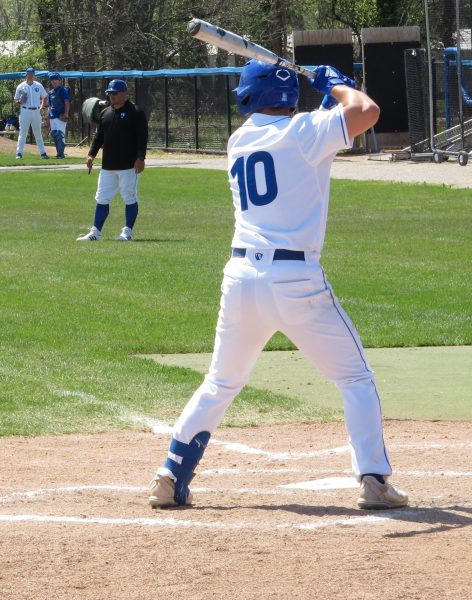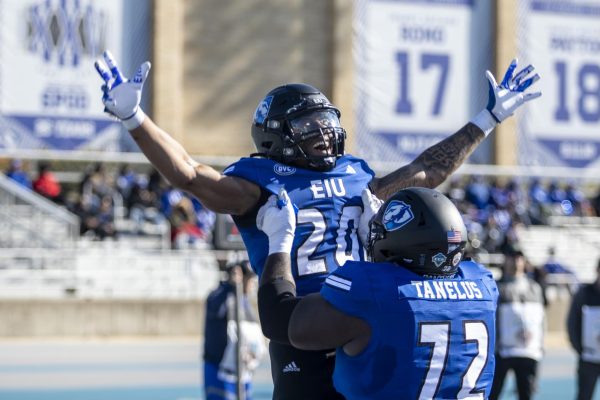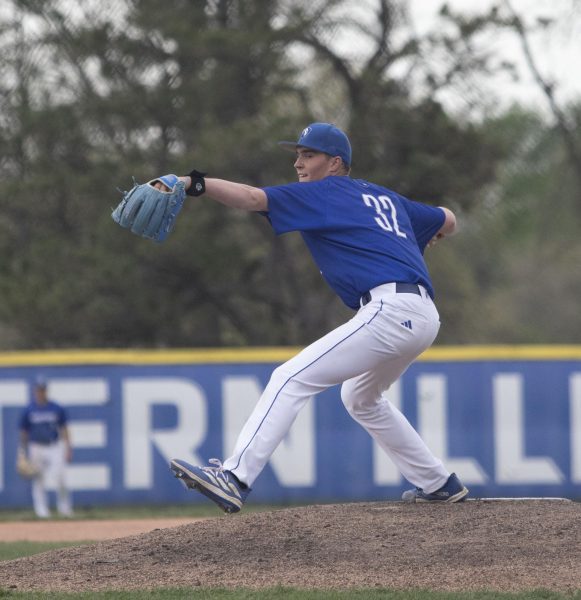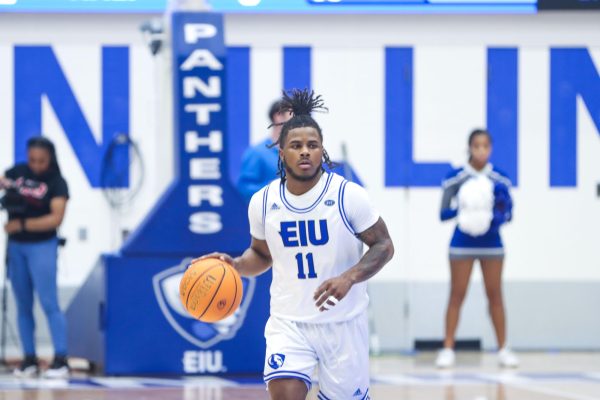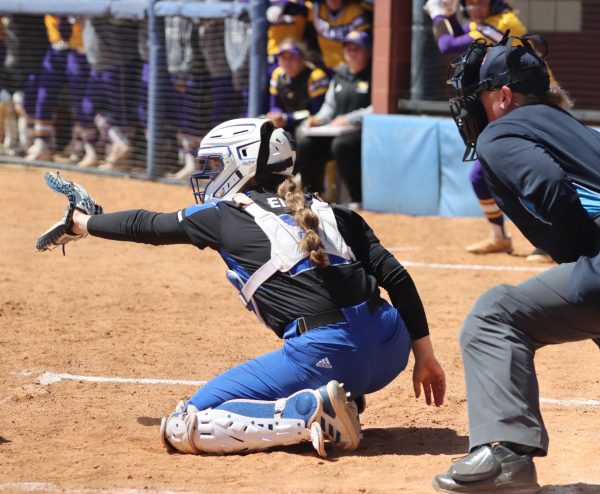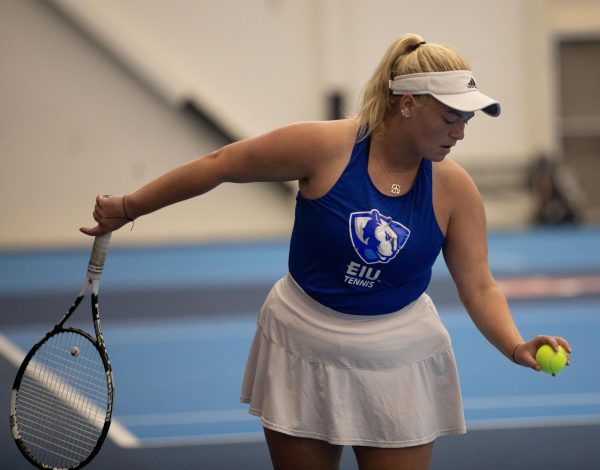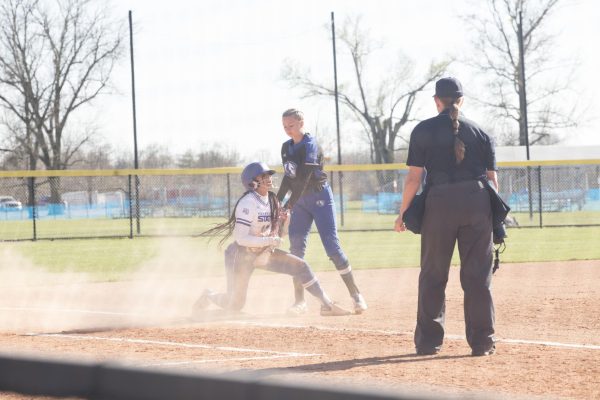Former Eastern wrestlers among plaintiffs receiving $11 million in judgement
If measures Director of Athletics Rich McDuffie has taken do not stop companies from trying to sell video of athletes changing in locker rooms, a recent $500 million judgment will.
A federal judge ordered eight companies and three people to pay more than $506 million to 46 college athletes secretly videotaped naked.
Some of the athletes who were videotaped where from Eastern.
One of the hidden cameras from which video was collected was reported to have been in 1995 at the Midlands wrestling tournament at Northwestern University in Evanston. Eastern wrestlers were in that meet.
Panther head wrestling coach Ralph McCausland said he couldn’t recall exactly how many athletes from Eastern were on the tapes.
One of the unnamed athletes, who spoke at a news conference Wednesday from behind a screen, said it is his “greatest wish” that the people responsible for peddling the tapes be prosecuted.
“It’s extremely violating,” said the athlete, now a 30-year-old health care worker, at the news conference in Chicago. “It’s kind of like a lifelong illness.”
No criminal charges were filed in connection with the tapes. Illinois has since enacted a law making it illegal to secretly film anyone in locker rooms or bathrooms, but many states don’t offer such protection.
McDuffie took steps to keep illegal tapings from happening at Eastern.
“The first thing we did was put signs up saying that it was illegal, which I thought was obvious, but apparently it’s not so obvious for everyone,” McDuffie said Wednesday.
McDuffie said university personnel also make sweeps of the locker rooms after athletes have left to make sure there are no cameras or objects left behind.
U.S. District Judge Charles P. Kocoras’ decision grants each of the 46 athletes $1 million in compensatory damages and $10 million in punitive damages.
The incident first came to light in 1999, when the Chicago Tribune reported that hidden-camera videotapes, including footage taken at the Midlands Tournament, were being marketed online and by mail.
In 1999 the athletes sued the people selling the footage, and a federal judge granted the students a default judgment Nov. 25 after the defendants repeatedly failed to show up in court.
“We look at this judgment as the court system sending a signal to the sexual predators that they’re not going to get away with this,” said attorney Cindy Fluxgold, who represents several of the athletes.





































